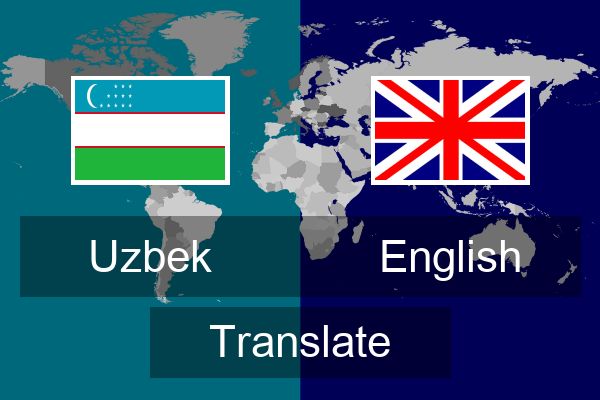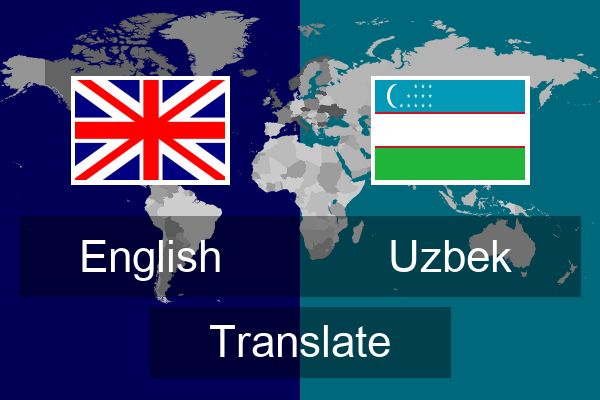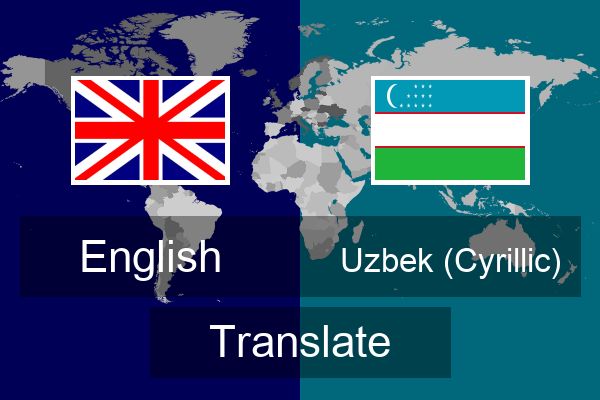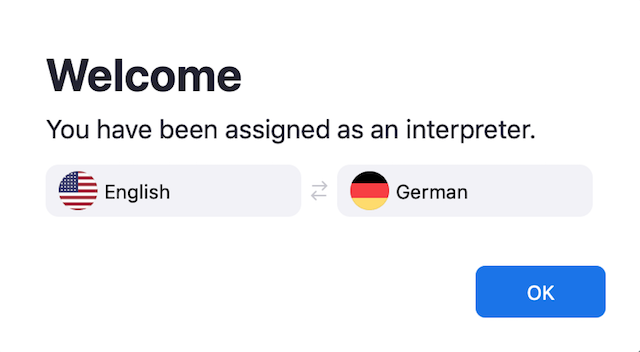Topic translate uzbek to english: Unlock the world of Uzbek language with our expert tips on translating Uzbek to English, enhancing communication and understanding across cultures.
Table of Content
- How can I translate Uzbek to English online for free?
- Top Free Online Uzbek to English Translation Tools
- Professional Uzbek to English Translation Services
- Common Phrases in Uzbek Translated to English
- Understanding Uzbek Grammar for English Speakers
- Best Practices for Accurate Uzbek to English Translation
- Technological Advancements in Uzbek to English Translation
- YOUTUBE: Learn Uzbek While You Sleep - Most Important Uzbek Phrases and Words - English/Uzbek
- Cultural Nuances in Uzbek to English Translation
- Uzbek to English Dictionary Resources
- Learning Resources for English Speakers Studying Uzbek
- FAQs on Uzbek to English Translation
How can I translate Uzbek to English online for free?
To translate Uzbek to English online for free, you can follow these steps:
- Open a web browser and go to the Google search engine.
- In the search bar, type \"translate Uzbek to English\" and hit enter.
- Review the search results to find a suitable online translation tool.
- Click on one of the search results that offer Uzbek-to-English translation services.
- Once you are on the translation website, you will typically find a text box or a field where you can enter or paste the Uzbek text you want to translate.
- Enter your Uzbek text into the provided text box.
- Choose the source language as Uzbek and the target language as English.
- Click on the \"Translate\" or similar button to initiate the translation process.
- Wait for the translation to be processed.
- Once the translation is complete, the translated text will usually appear in another text box on the website.
- You can then copy the translated English text from the website and use it as needed.
Remember to always double-check the accuracy of the translation, as automated translation tools may not always be perfect.
READ MORE:
Top Free Online Uzbek to English Translation Tools
Discover the most effective and user-friendly online tools for translating Uzbek to English without spending a dime. These platforms offer accurate translations, helping you bridge the language gap with ease.
- Google Translate: A versatile tool that supports Uzbek to English translation for both text and web pages. Offers instant translations and pronunciation guides.
- Microsoft Translator: Known for its accuracy and support for multiple formats including text, speech, and documents. Integrates well with various Microsoft products.
- Yandex Translate: Provides reliable translations with a simple interface, supporting texts, websites, and even images.
- Translate.com: Offers straightforward text translations with an option for professional translations at a fee for more complex needs.
- Babylon Translator: A veteran in the field, known for its comprehensive language support including Uzbek to English translations.
Each of these tools comes with its unique set of features, such as voice recognition, text-to-speech, and mobile app availability, making them handy for both casual and professional uses.
Professional Uzbek to English Translation Services
For those requiring precision and cultural sensitivity in translations, professional Uzbek to English translation services are invaluable. These services cater to various needs including legal documents, business contracts, and academic research.
- Translation Agencies: Specialized firms offer expert translators with deep understanding of Uzbek and English linguistic nuances.
- Freelance Translators: Platforms like Upwork and ProZ connect you with experienced translators for personalized service.
- Language Service Providers (LSPs): These companies provide comprehensive translation services, including localization and interpretation.
Opting for professional services ensures accuracy, confidentiality, and adherence to deadlines. They employ state-of-the-art tools and human expertise to deliver translations that resonate with the target audience.

Common Phrases in Uzbek Translated to English
Grasping some common phrases in Uzbek can significantly enhance your communication skills and cultural understanding. Here are translations of frequently used Uzbek phrases to help you connect and engage more deeply with Uzbek speakers.
- Salom: Hello
- Qandaysiz?: How are you?
- Rahmat: Thank you
- Xayr: Goodbye
- Iltimos: Please
- Ha: Yes
- Yo\"q: No
- Meni ismim...: My name is...
- Siz bilan tanishganimdan xursandman: Pleased to meet you
- Yordam bera olasizmi?: Can you help me?
These basic phrases serve as a foundation for building your Uzbek language skills, enabling smoother interactions and a better appreciation of the culture.
Understanding Uzbek Grammar for English Speakers
Uzbek grammar presents unique features that differ significantly from English, making it both a challenging and rewarding language to learn. Here are key aspects to help English speakers grasp the fundamentals of Uzbek grammar.
- Nouns: Uzbek nouns do not have genders. However, they follow specific pluralization rules, often adding \"-lar\" or \"-lar\" at the end of the word.
- Verbs: Uzbek verbs are conjugated according to tense and person. The verb usually comes at the end of the sentence in Uzbek.
- Adjectives: In Uzbek, adjectives come before the noun they describe, similar to English, but they do not change form based on the noun.
- Pronouns: Uzbek pronouns change form depending on their role in the sentence (subjective, objective, possessive).
- Word Order: The typical sentence structure in Uzbek follows a Subject-Object-Verb (SOV) order, contrasting with the SVO order of English.
- Postpositions: Instead of prepositions, Uzbek uses postpositions that come after the noun they relate to.
- Agglutination: Uzbek is an agglutinative language, meaning it often expresses grammatical relationships through the addition of suffixes to a base word.
Understanding these elements of Uzbek grammar can significantly aid in mastering the language, providing a solid foundation for further study and communication.

_HOOK_
Best Practices for Accurate Uzbek to English Translation
To achieve accuracy in translating from Uzbek to English, it\"s essential to adhere to best practices that ensure clarity, cultural relevance, and correctness. Here are strategies to enhance the quality of your translations.
- Understand Context: Always consider the context of the conversation or document to choose the most accurate words and phrases.
- Use Reliable Resources: Utilize reputable dictionaries and translation tools for reference to avoid common mistakes.
- Stay Culturally Informed: Understanding Uzbek culture and idiomatic expressions can significantly improve translation quality by conveying the intended meaning more effectively.
- Proofreading: Always double-check your translations for grammatical errors, typos, and nuances to ensure they are error-free.
- Professional Assistance: For critical documents, consider hiring professional translation services to guarantee accuracy and reliability.
- Continuous Learning: Regularly update your knowledge of both languages, as languages evolve over time.
- Feedback: Seek feedback from native speakers or professional translators to refine your translation skills.
Implementing these practices will significantly improve the accuracy of your Uzbek to English translations, making them more reliable and effective for any purpose.
Technological Advancements in Uzbek to English Translation
The field of Uzbek to English translation has seen significant technological advancements, enhancing both accuracy and accessibility for users worldwide. These innovations have transformed how we approach language barriers.
- Machine Learning Algorithms: Advanced AI and machine learning algorithms have improved the quality of automated translations, making them more context-aware and accurate.
- Natural Language Processing (NLP): NLP technologies help in understanding the nuances of both Uzbek and English, providing translations that are not only literal but also capture intended meanings.
- Speech-to-Text and Text-to-Speech Services: These technologies facilitate real-time communication, allowing for instant verbal translations between Uzbek and English.
- Mobile Apps: With the proliferation of smartphones, several mobile applications now offer Uzbek to English translation on-the-go, making it more accessible to travelers and learners alike.
- Translation Memory Software: This software aids translators by saving repeated phrases or sentences, increasing efficiency and consistency in large translation projects.
- Online Dictionaries and Glossaries: A wealth of resources is available online, providing detailed definitions, synonyms, and examples in both languages.
These technological advancements have not only made translation more efficient but also opened new avenues for cross-cultural communication and understanding.

Learn Uzbek While You Sleep - Most Important Uzbek Phrases and Words - English/Uzbek
\"Embark on an exciting learning journey as you delve into the world of Uzbek language! Our video tutorial will equip you with valuable linguistic skills, making your learning process enjoyable and effective. Start your Uzbek language adventure today!\"
Cultural Nuances in Uzbek to English Translation
Translating between Uzbek and English requires a deep understanding of the cultural contexts that shape how ideas and emotions are expressed. Recognizing these nuances is crucial for conveying the original message accurately and respectfully.
- Idioms and Proverbs: Many Uzbek idioms and proverbs have no direct English equivalent. Translators must find creative ways to convey the underlying meanings without losing their cultural essence.
- Formality Levels: Uzbek language has different levels of formality depending on the audience and situation. English translations must adapt to these nuances to maintain the appropriate tone.
- Social and Historical Context: References to Uzbek history, literature, and traditions often require additional explanation to be fully appreciated by English-speaking audiences.
- Non-Verbal Communication: Understanding the role of non-verbal cues in Uzbek communication can inform translations, especially in literary and artistic contexts.
- Names and Titles: Proper translation of names and titles requires knowledge of Uzbek customs and the significance of honorifics, which may not have direct English counterparts.
- Religious References: Uzbek culture is deeply intertwined with Islam, and religious references may need careful translation to preserve their significance and sensitivity.
Awareness of these cultural nuances ensures that translations not only convey words but also the intentions, emotions, and cultural depth behind them, fostering greater understanding and appreciation between speakers of these two languages.
Uzbek to English Dictionary Resources
For students, translators, and anyone looking to deepen their understanding of the Uzbek language, a variety of Uzbek to English dictionaries and resources are available. These tools range from traditional paper dictionaries to modern digital platforms, each offering unique features to assist with translation and learning.
- Online Dictionaries: Websites like Sozdik, Lingvo, and Glosbe offer comprehensive Uzbek to English translations, including examples of usage, synonyms, and pronunciation guides.
- Mobile Apps: Applications for smartphones and tablets provide convenient access to Uzbek-English dictionaries on the go, with features like offline access and word games for language practice.
- Printed Dictionaries: For those who prefer traditional methods, printed dictionaries can be purchased or found in libraries. They are invaluable for in-depth study and understanding of linguistic nuances.
- Academic and Research Databases: Databases such as JSTOR and Google Scholar may offer access to specialized glossaries and lexical studies on the Uzbek language.
- Language Learning Platforms: Platforms like Duolingo, Memrise, and Rosetta Stone are starting to include Uzbek in their language offerings, providing interactive ways to learn vocabulary and grammar.
Utilizing a combination of these resources can significantly enhance your Uzbek to English translation skills, offering a well-rounded approach to learning and understanding the language.

Learning Resources for English Speakers Studying Uzbek
English speakers eager to learn Uzbek have a wealth of resources at their disposal, designed to cater to learners at all levels. From online courses to immersive language programs, here are some key resources to help you master Uzbek.
- Online Language Courses: Platforms like Udemy, Coursera, and EdX offer courses in Uzbek language, covering basics to advanced levels.
- Language Learning Apps: Apps such as Duolingo, Babbel, and Memrise have started to include Uzbek, offering interactive lessons and practice exercises.
- Textbooks and Workbooks: There are several textbooks available for learning Uzbek, providing structured lessons, grammar exercises, and vocabulary building activities.
- Language Exchange Communities: Websites like Tandem and HelloTalk connect learners with native Uzbek speakers for language exchange, allowing for real-life practice and cultural exchange.
- YouTube Channels: Several channels dedicated to teaching Uzbek can provide visual and auditory learning materials, ranging from basic phrases to complex grammatical structures.
- Immersion Programs: For a more intensive learning experience, some institutions offer immersion programs or summer schools, which are great for deepening language skills and cultural understanding.
Engaging with a variety of these resources can enhance your learning experience, making the journey of mastering Uzbek both effective and enjoyable.
_HOOK_
READ MORE:
FAQs on Uzbek to English Translation
Embarking on Uzbek to English translation poses unique challenges and questions. Here\"s a comprehensive guide addressing the most common queries to assist beginners and advanced learners alike.
- Can I rely on online translation tools for accurate Uzbek to English translations? While online tools provide a good starting point, for nuanced or critical translations, consulting a professional or using advanced software is recommended.
- How do I find a professional Uzbek to English translator? Look for certified translators on platforms such as ProZ.com, TranslatorsCafé, or through professional translation services companies.
- Are there any specific challenges in translating Uzbek to English? Yes, including the handling of cultural nuances, idiomatic expressions, and the agglutinative nature of Uzbek which can affect sentence structure.
- What resources can help me learn Uzbek grammar and vocabulary? Utilize textbooks, online courses, language learning apps, and immersion programs for a comprehensive understanding.
- How can I practice Uzbek to English translation? Engage with native speakers, participate in language exchange communities, and practice translating various types of content such as news articles, literature, and official documents.
- What are the best practices for accurate translation? Understand the context, use reliable dictionaries and resources, stay culturally informed, and always proofread your translations.
Addressing these FAQs will equip you with a better understanding of the translation process, ensuring more effective and accurate communication between Uzbek and English speakers.
Embarking on the journey of translating Uzbek to English opens up a world of cultural exchange and understanding. Equip yourself with the right tools and knowledge to master this linguistic bridge.








